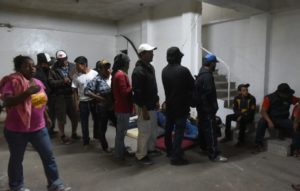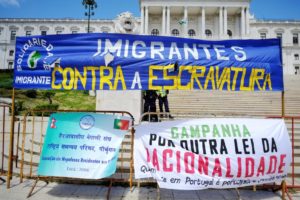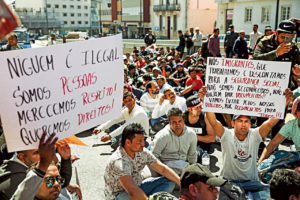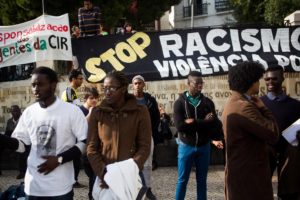The impact of teenage pregnancy is much greater in girls

In the past eight years more than eight hundred cases of child marriages – early or forced – were identified in the country. Although most of the teenagers who got married are between 16 and 18 years old, there are 126 situations that involve children between 10 and 14 years old and 346 between 15 and 16 years old. The average age on the date of marriage was 15 years for girls and 17 years for boys

Of the total of 836 cases identified, 493 were child marriages, 261 early marriages and 82 forced marriages. These data are based on the responses of 224 public and private entities and published last October in the White Paper: Recommendations to prevent and Combat Child, Early and /or Forced Marriage.

To get married in Portugal, one must be at least 16 years old, and requiring authorization from parents or legal guardians.
Due to pressure from childhood and youth organizations, the minimum age for marriage has only this year been raised by Parliament to 18 years.

The impact of early marriage is much greater on girls, who see their rights to health, education and development denied. The withdrawal from school often works as a form of pressure for marriage, explains the Commission for Citizenship and Gender Equality (CIG), which published the White Paper

And further: last year health authorities detected 238 cases of female genital mutilation in the country. Each year more cases are identified. The identification occurred in several areas: pregnancy checks, childbirth, hospital and primary health care consultations. The victims were from Eritrea, Gambia, Guinea, Senegal, Sierra Leone and Somalia.

The United Nations assume that there are 4.4 million girls at risk of genital mutilation, the equivalent of more than 1200 cases per day.
Only a quarter of the survivors of genital mutilation had contact with a health professional.

It is estimated that in Portugal some 6500 women – mostly from Guinea-Bissau -are victims of a practice that is ‘a flagrant violation of human rights with permanent damage to the physical and mental health and a terrible act of gender-based violence.’

Currently, there are only three specific support offices for victims of harmful practises such as child, early or forced marriages and female genital mutilation, the National Center for Migrant Integration Support (CNAIM) in Lisbon, the Algarve and the north of the country
Enjoy the week Approveite a semana (pic Público/Sapo)











 The ruling socialist party wants the government to speed up the
The ruling socialist party wants the government to speed up the  The reason for the amendment was the large-scale demonstration in May, when immigrants gathered before Parliament, expressing that they were treated like second-rank citizens, even though they paid tax and social insurance.
The reason for the amendment was the large-scale demonstration in May, when immigrants gathered before Parliament, expressing that they were treated like second-rank citizens, even though they paid tax and social insurance. ‘The law doesn’t promote the integration of immigrants, who work here for many years but are not treated as human beings’, says Timóteo Macedo, president of Solidaridade Imigrante (Solim). ‘Our Government argues, that we need more
‘The law doesn’t promote the integration of immigrants, who work here for many years but are not treated as human beings’, says Timóteo Macedo, president of Solidaridade Imigrante (Solim). ‘Our Government argues, that we need more  Both left and right wing parties in Parliament are concerned about racism in the police force and violation of human rights in prisons. The reason is a recently published report of the European Committee against Torture, stating that police violence in Portugal – in particular against African descendants – is the highest in Western Europe.
Both left and right wing parties in Parliament are concerned about racism in the police force and violation of human rights in prisons. The reason is a recently published report of the European Committee against Torture, stating that police violence in Portugal – in particular against African descendants – is the highest in Western Europe. The committee – that also visited the country in 2013 – emphasizes that the police violence at police stations has increased and that the situation in the overcrowded prisons of Caxias, Setubal, and Lisbon is ‘inhuman and degrading.’
The committee – that also visited the country in 2013 – emphasizes that the police violence at police stations has increased and that the situation in the overcrowded prisons of Caxias, Setubal, and Lisbon is ‘inhuman and degrading.’ Julia Kozma, lawyer and chairing the European delegation, points the finger towards the Ministry of Internal Affairs – responsible for the police and the security forces – and regrets its lack of ‘awareness’. The Ministry denies the accusations and declares that ‘all complaints about violent police conduct are investigated by the Internal General Inspectorate (IGAI) and immediately reported to the Public Prosecutor.’
Julia Kozma, lawyer and chairing the European delegation, points the finger towards the Ministry of Internal Affairs – responsible for the police and the security forces – and regrets its lack of ‘awareness’. The Ministry denies the accusations and declares that ‘all complaints about violent police conduct are investigated by the Internal General Inspectorate (IGAI) and immediately reported to the Public Prosecutor.’ The reality, however, is that only a very small number of the complaints are brought before court. ‘And that’s exactly the problem’, says Kozma. ‘There is a spirit of impunity and bureaucracy, whereby complaining doesn’t help. The inspection body (IGAI) needs more skills to conduct criminal investigations and more resources to act independently.’
The reality, however, is that only a very small number of the complaints are brought before court. ‘And that’s exactly the problem’, says Kozma. ‘There is a spirit of impunity and bureaucracy, whereby complaining doesn’t help. The inspection body (IGAI) needs more skills to conduct criminal investigations and more resources to act independently.’ In recent months the non-governmental organization SOS racism received an increasing number of grievances from inmates in the prison of Lisbon about racist provocations and intimidations. Peculiar was that all complaints came from African immigrants and that any registration on xenophobe or racist behavior from the guards and staff is lacking.
In recent months the non-governmental organization SOS racism received an increasing number of grievances from inmates in the prison of Lisbon about racist provocations and intimidations. Peculiar was that all complaints came from African immigrants and that any registration on xenophobe or racist behavior from the guards and staff is lacking.